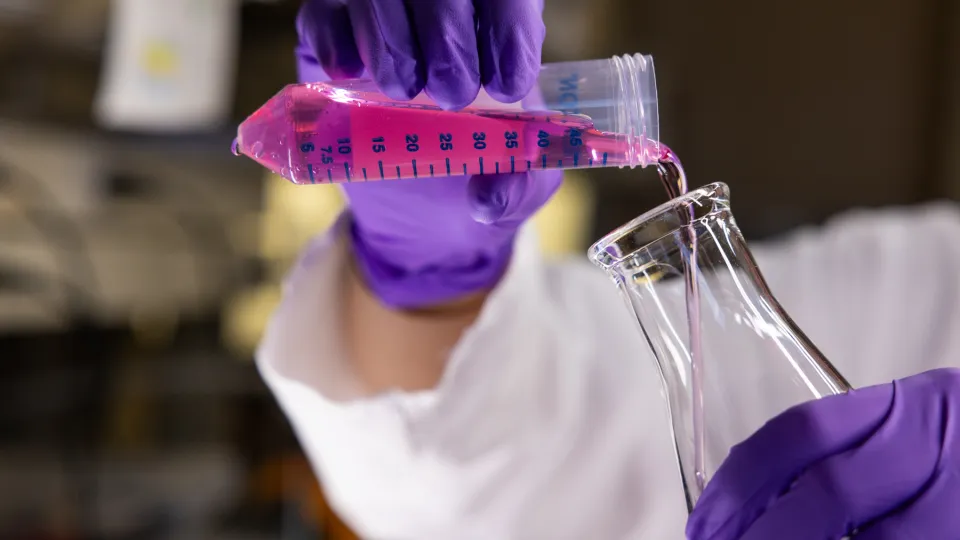News Brief
Identifying Peptides That Trigger Type 1 Diabetes
February 23, 2023
Type 1 diabetes (T1D) occurs when immune cells called T-cells attack and destroy insulin-producing beta cells of the pancreas. Evidence now suggests that T cells—including cytotoxic CD8+ T cells essential for beta-cell killing—may home in on unconventional insulin peptides displayed on the surface of beta cells.
Teresa DiLorenzo, Ph.D., has received a two-year, $1.2 million grant from the National Institute of Diabetes and Digestive and Kidney Diseases to investigate and identify the beta-cell molecules that are targeted by CD8+ T cells, resulting in T1D. Dr. DiLorenzo and her team will use a mouse model of T1D they have developed that transgenically expresses human insulin. The goal of the research is to lay the foundation for a T1D therapy that prevents CD8+ T cells from targeting specific molecules on beta cells.
Dr. DiLorenzo is professor of microbiology & immunology, and of medicine, and the Diane Belfer, Cypres & Endelson Families Faculty Scholar in Diabetes Research at Einstein. (1R01DK135079)



